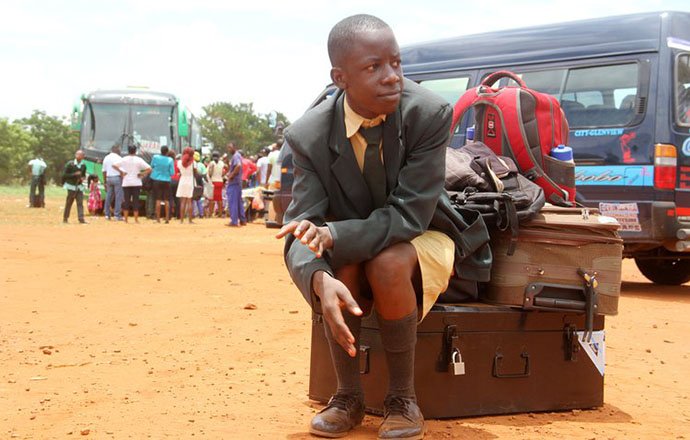Surviving boarding school syndrome. In our ongoing joke with my pals, surviving boarding school should be listed as a skill on your curriculum vitae. I don’t think you’ve already forgotten about the morning’s porridge, which was different, or all those half-cooked beans and the cabbage. Yes, I believe that your memory of that Saturday (GIGI) dance day, when you had to demonstrate your dancing prowess, has been little jolted. What about those post-dinner dates with your high school love interest or boyfriend?
In the early 2000s, I went to boarding school for six years. Every experience is different, but I’ve learned from interacting with others that there are a lot of universal elements that appear to transcend gender, age, and familial situations.
Although many children placed in foster care have gone through considerably worse, this would have been the last option in the event of a family collapse. Boarding school, on the other hand, is thought to be a wise decision but will it leave you the same emotionally?
There was hardly much that occurred at the boarding school that couldn’t have occurred elsewhere. Forced separation from family, emotional neglect, bullying and abuse, as well as loneliness and isolation, are all issues.
The fact that all of this occurs simultaneously for very young people who must learn to find their way through its continuous repetition with little to no support makes this experience unusual. There is nowhere to run from this emotional hurricane, especially for the newest and smallest.
The split between home and school
The emotional distance between home and school can feel tremendous, whether the travel is a bus ride or mushika shika. A few weeks after arrival, some kids discover that their bond and care have ended. Regardless of the interest a child may receive in boarding school, it is not the same as what a caring parent would ideally provide.
Some young people have already built a carapace to protect the softer creature inside because the process of dissociation had started years earlier. Others rapidly pick up the skill of creating a cocoon around themselves to shield them from the daily emotional and occasionally physical onslaught.
The separation of home life from school life might result in the development of various identities. These various stories don’t usually cross across. People at home start to lose interest in stories that are told out of context as they amass faster than they can be told. Many instances are too embarrassing to discuss, either because of our own guilt about our involvement or because we want to shield our loved ones from the difficult truth.
Some individuals struggled to establish a life at home. Without regular shared experiences, the difference would expand even for individuals who already had connections in their local community.
Trust and its absence
For some kids, going to boarding school was an expected shift or even a rite of passage that had developed into a family custom. Others tried to find justifications for their expulsion that went beyond mere expediency. They may feel betrayed by individuals they trusted, and if so, further betrayals by those entrusted with their care may only serve to cement that feeling.
Many of our housemasters appeared to be little older than sixth formers and had just just earned their teaching credentials. They didn’t have any special pastoral assistance training, as far as I know. Despite the rare gesture of generosity, there was no indication of any special abilities, and everyone appeared to struggle with the competing demands of being a friend while also maintaining authority.
Lack of faith in others to look out for us can result in a constant state of alertness. Threats might surface at any time without prior notice, therefore we must always be on the watch for them. We quickly develop the attentiveness that is necessary to exist in this dangerous environment, making it second nature.
The use and abuse of power
Numerous facets of our regular activities turned into chances to reaffirm the power dynamics that threaded through each one like coastal names in a stick of rock.
At my boarding school, I believe that bullying caused all of us to be compelled to do things we didn’t want to do. We lost our sense of personal control because we were constantly convinced to act against our own interests through intimidation and compulsion. People who were thought to be unique from the others, particularly those who cried or wet their beds, were singled out for special consideration.
Seniors played a key role in aiding the staff in maintaining control over the others. This sparked various forms of collaboration that informally established further power echelons, each with its own distinct culture. There was a sense of belonging for those who were able to connect themselves with the dictatorship. For those who were unable, a sense of perpetual wrongness crept into every facet of our life.
Relentless routines
We were never left alone, which is typical of residential facilities. While extroverts may find this delightful, introverts may find it to be quite difficult. Even though there was just one opportunity for downtime—at night—when this was done with a dozen other people, there were still stresses.
Every practical matter, including food and clothes, personal hygiene, homework, and recreation, was governed by a strict set of rules that almost invariably entailed standing in line, recording people’s names, and waiting a long time.
In so many circumstances, finishing the task seemed to be more important than how any one person could see it. Then, it is simple to consider your personal needs and wishes to be incidental to the constant grinding of the machine.
Taking care of ourselves
Finding a strong position to stand in might be challenging due to confusion about shifting positions and the numerous levels of institutionalized hard and soft values. One solution is to use your own resources to build a castle that is independent of anyone, anywhere, or anything else and that you can carry from your dorm to your class and return.
Many of us created a mask that was intended to reveal very little since looking careless made us less vulnerable. Rather than taking the chance of showing our genuine selves, it was simpler to become a caricature. While some people had the freedom to choose their own identities, some who were more vulnerable received a badge they could not remove.
You put your head down and get through another day till the conclusion of each term because perseverance can often take precedence over delight. The countdown would start over for individuals who had equally difficult home lives.
There may have been occasions when we helped the bullies out, feeling relieved that we weren’t the target, or when we chose not to support the victim out of fear of being labelled as well. These deeds or omissions turn into an easy source of individual shame.
The need to fit in requires squeezing square pegs into round holes. Both temporary and permanent disfigurement may result from this. Others concealed their edges while feigning roundness, but at a very different price.
Impact on development
Our childhood was isolated. Even though many children experience this, ours was raised in a setting that seemed to have little in common with our homes. Not everyone considered the role models to be relevant, and to some, they seemed to be completely disconnected from our daily lives.
Our shortcomings are frequently our strengths in reverse, making us strong in some situations and weak in others. Later in life, this equilibrium may have been restored, or perhaps our experiences have strengthened our beliefs, causing the gap to grow wider.
Our coping mechanisms helped us get through these trying moments, but they might have hindered our growth and capacity to move on from this predicament. When presented with a fresh set of goals, the identities we thought we had to acquire might not be as simply shed.
We were children attempting to make mature judgments about the world and how to act in it. We could only rely on each other’s experiences, and those weren’t always reliable.
The survivor’s experience
Many individuals, at least from what I can gather, flourished in this setting. We could clearly feel that the event was fostering our resourcefulness and independence even while it was happening. How much armor have we placed on, though, and how well is it doing?
Due to the fact that we never really understood why we were taken away, we can still have a wobbly sense of our own worth. There is no good foundation from which to create a life if one’s self-belief is founded solely on an inability to trust others rather than on self-knowledge.
We may become quite well protected as a result of this forced self-reliance, and we may also develop an emotional detachment that occasionally borders on numbness. This might make it challenging for us to start and keep relationships, especially ones where intimacy and trust are expected.
We can appraise a situation and make the best of it by learning to blend in and avoid being spotted by the bullies. However, it might affect our capacity to recognize and express our own needs and desires without feeling guilty.
Long after the initial threat has passed, we may still experience the unidentified terror that caused us to develop a keen awareness of what is going on around us. We could feel uneasy and anxious as a result of this.
Control problems with regard to diet, personal hygiene, and daily routines can all be the result of being made to follow a rigid and harsh system.
For what we did or did not do, or for what was done to us, many of us are left feeling utterly ashamed. The impression that life should be endured rather than enjoyed is what is left, and we sometimes need to muster up a lot of bravery to be joyful.

